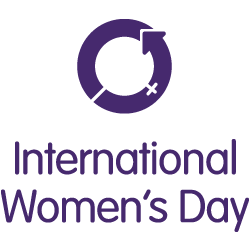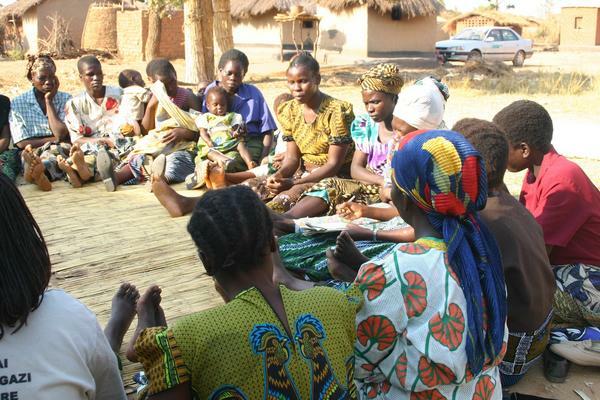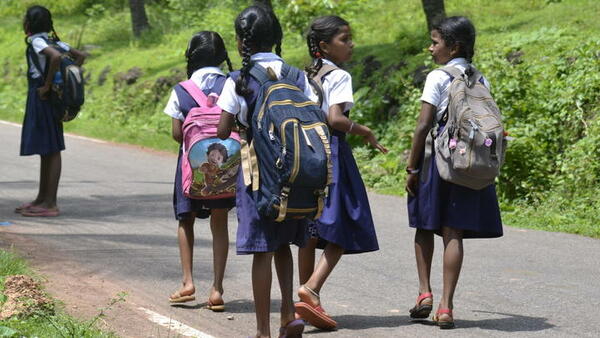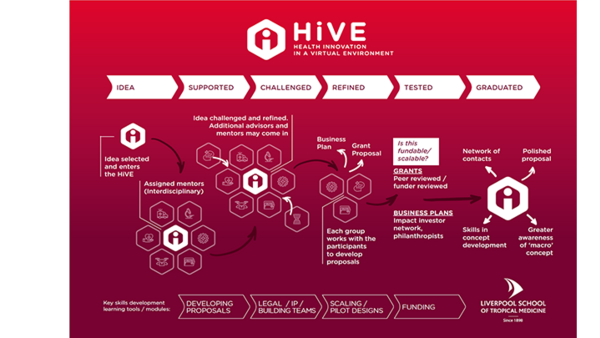
International Women's Day 2020
#IWD2020 #EachforEqual

Liverpool School of Tropical Medicine celebrates International Women’s Day
The year 2020 is a critical year for advancing gender equality globally and locally. It is 25 years since the adoption of the Beijing Platform for Action, the 20th anniversary of UN Security Council resolution 1325 on women, peace, and security; and the 10th anniversary of the establishment of UN Women. Liverpool School of Tropical Medicine will have a week of action and celebration in the week before International Women’s Day on Sunday 8th of March.
The theme for 2020 is “An equal world is an enabled world”. During the week staff members – women, men and non-binary – from LSTM and Malawi Liverpool Wellcome Trust (MLW) will be tweeting photos of themselves striking the Each for Equal pose using the hashtags #EachforEqual and #IWD2020. The LSTM buildings will be lit up purple – the colour of international women’s day which was initiated more than 100 years ago when 15,000 women marched on New York City demanding better working conditions.
On Thursday 5th of March we will hold an open meeting to celebrate international women’s day, learn about the action here and LSTM’s commitment to gender equality with the opportunity to make pledges for change.
During the week we will also be showcasing and celebrating our inspiring women alumni and research partners on current research grants from the global south in a digital display and a physical installation that has been project-managed by IMPALA’s Elly Wallis. The digital display features 53 women from 25 institutions across 18 countries, spanning 10 research grants.
The research projects featured are led by LSTM and include research and action on accountability in urban health through ARISE; lung health and tuberculosis through IMPALA; Neglected Tropical Diseases through COUNTDOWN, severe stigmatising skin diseases through REDRESS; vectors of malaria and other vector-borne diseases through PIIVEC; drivers of antibiotic resistance through DRUM; reducing sexual and reproductive harm and school dropout through the Cups or Cash for Girls study (CCg) testing new drug regimens to prevent malaria (STIs/RTIs) in pregnancy through IMPROVE and scaling up successful health systems strengthening interventions through PERFORM2SCALE.
LSTM and collaborative partners celebrate International Womens' Day
The Hidden Figures Leading Global Health
What do leaders look like in global health? What if our models and stereotypes are wrong? With 20 years of experience of and learning of leadership in global health, Sally finds that leadership in global health is diverse and multi-layered and often female. She showcases different types of leadership that are too often unrecognised – within households and communities in the global south; collective solidarity leadership in urban slums and compassionate and resourceful leadership in war.
This is the TEDXLSTM talk delivered by Professor Sally Theobald in November 2019
Some of our latest research output positively affecting gender and health outcomes
LSTM’s growing contribution to research and global action for menstrual health
Work at LSTM, led by Dr Penelope Phillips-Howard, addresses menstrual health (MH) and a lack of sanitary products in low and middle-income countries. It will help to mitigate gender-health related disparities across the world. Following successful interventions in Kenya, which have seen students able to stay in school, the expertise developed will now be used to research period poverty faced by homeless girls and women living in Liverpool.

Expanding training in Emergency Obstetric Care (EmOC)-reducing mortality in Childbirth.
Most stillbirths, maternal and neonatal deaths occur in low- and middle-income countries (LMIC) due to complications, which are largely unpredictable and unexpected. In response, evidence-based interventions are bundled to form an internationally agreed and defined package called Emergency Obstetric Care (EmOC). LSTM’s Centre for Maternal and Newborn Health conducted research to identify why women die, why stillbirths occur and why minimum indicators for EmOC are not met. A multicountry implementation study showed that a new ‘skills and drills’ training package for skilled birth attendants and strengthening of health facility capacity to provide EmOC saves lives. It was the first study to document a measurable increase in healthcare provider capacity, an increased number of women recognised needing and receiving EmOC, and a reduction in maternal mortality and stillbirths. This approach has been scaled up in all participating countries and adopted by 5 new countries.
Health Innovation in a Virtual Environment (HiVE)
HiVE is LSTM’s pioneering virtual incubator, bringing together teams to accelerate ideas to impact. HiVE aims to identify and test new ideas for global health by bringing together virtual teams across borders, sectors, and disciplines. HIVE is designed to identify raw talent and take brilliant ideas from initial spark to confident concept, to refined grant proposal or business plan.
Understanding the impacts of sex and gender on neglected tropical disease risk and outcomes
Staff from the Department of International Public Health continue to play a role in COUNTDOWN, with participatory action research to strengthen NTD programmes, with a gender, poverty and disability lens. This research and partnerships were strongly featured at the European Tropical Medicine and International Health (ECTMIH) conference in Liverpool in September 2019. The group undertook a consultancy for UNDP on gender and NTDs. Ethnographic research into gendered everyday realities of antibiotic use in urban and peri-urban Malawi has begun under DRUM. Highly productive discussions held between researchers and MoH policymakers from Sudan and Tanzania in improving health systems for chronic lung disease in Impala. Dr Kim Ozano was successful in obtaining a Directors Catalyst Fund award to develop participatory action research for health systems strengthening in Guatemala City.


